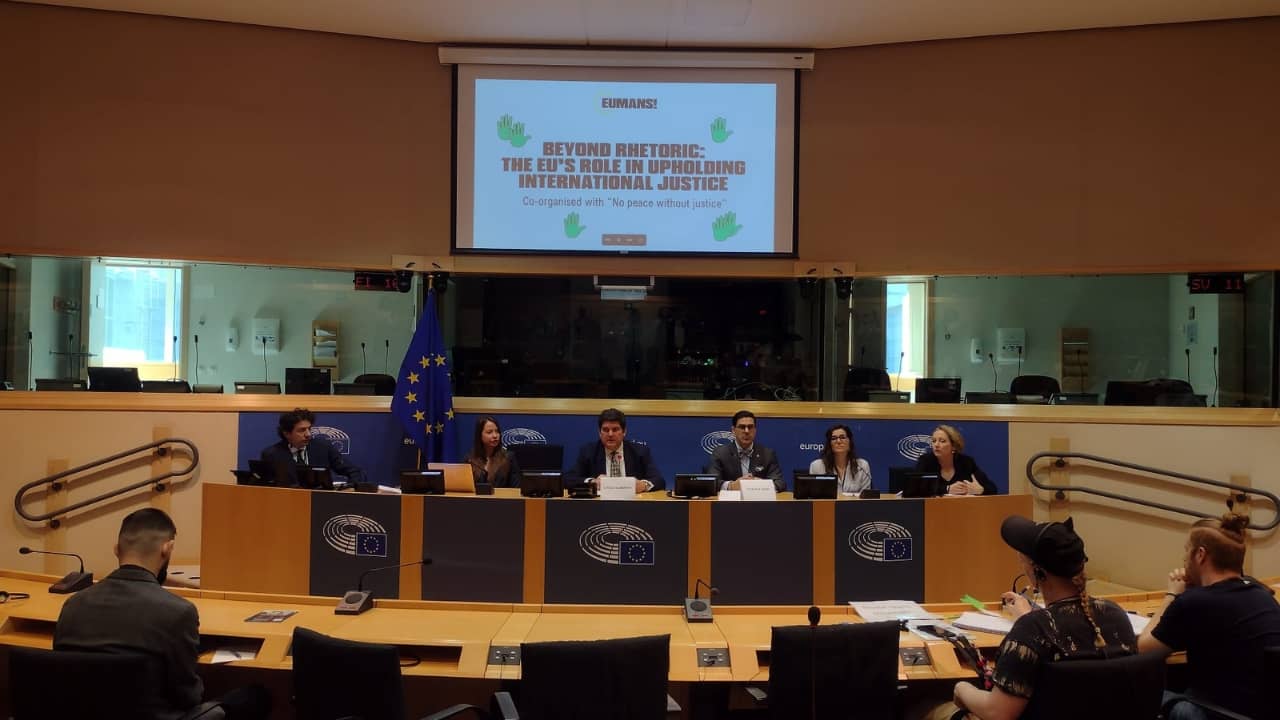On 12 December 2018, the plenary of the House of Deputies of Paraguay approved the draft ratification bill on the Kampala Amendments to the Rome Statute of the International Criminal Court (ICC), on war crimes and the crime of aggression.
This approval came after that of the relevant parliamentary committees, namely the Committees on Foreign Affairs, Legislation and Constitutional Affairs, and Justice. The Senate had already approved the Kampala Amendments ratification bill on 13 September 2018; PGA provided technical assistance upon request of the leadership of the Senate on the ratification of the crime of aggression. Since 2016, PGA members in the past legislature, Dip. Barrios and Dip. Bogado had started sensitizing their parliamentary colleagues and government officials to the importance of ratifying the amendments.
On 13 February 2019, the Executive branch promulgated the ratification law of the Kampala Amendments to the Rome Statute of the ICC. To consult the document, click here.
On 5 April 2019, Paraguay deposited its instruments of ratification of the Amendments at the United Nations.
PGA work in Latin America: Promoting Universality and Implementation of the Rome Statute
Within the framework of its Campaign for the Rome Statute of the ICC, PGA has been actively working with its members in Latin American countries for many years. Since 2012, through its regional parliamentary seminars in Montevideo on the universality and the implementation of the Rome Statute, PGA provides a space for legislators, experts, governments and civil society organizations to discuss best practices in the fields of international criminal law, strengthening the Rule of Law, the protection of human rights, and sustainable development. This year, the regional parliamentary seminar on the Rome Statute and the Rule of Law took place in Tegucigalpa, Honduras, and counted on the prominent participation as a panelist of Dip. Juan Sebastián Villarejo Velilla, Vice-president of the Committee on Legislation and Codification of the Chamber of Deputies of Paraguay.
In Latin America, the main objective remains the full implementation of the Rome Statute and in this regard, PGA commends the tremendous work that both chambers of the Paraguayan Parliament have achieved. Indeed, on 16 August 2017, the Chamber of Deputies of Paraguay unanimously approved the draft implementing legislation of the Rome Statute of the International Criminal Court (ICC), in compliance with the country’s international obligations as a State Party to the Rome Statute.
The momentum created by PGA’s Consultations on the Implementation of the Rome Statute and Support for the International Criminal Court in Paraguay in July 2016, helped boost the implementation process in the country through the participation of numerous parliamentarians and other relevant stakeholders from the Executive and the Judiciary branches, as well as civil society organizations, who addressed substantive aspects of the Rome Statute system and discussed political as well as legal obstacles to implementation.
Reinforcing the Fight Against Impunity
The work of legislators is paramount in ensuring that their State fully and efficiently participates in the Rome Statute system, in compliance with the principles of complementarity and cooperation.
This year, the Rome Statute celebrated its 20th anniversary and the activation of the jurisdiction of the ICC over the crime of aggression has taken effect. Although there is much work that remains to be done, PGA commends the Parliament of Paraguay for its leadership to work towards a rules-based international order for a more peaceful and developed society and where human rights have the highest standards of protection.
Survivors of international crimes, raison d’être of the Rome Statute system
In the context of such a progress towards a stronger domestic Rule of Law in many Latin American countries, it is to be reminded that the Rome Statute system seeks to deter the occurrence of international crimes, prosecute the alleged authors of these crimes, and provide reparations to the survivors. In this regard, PGA congratulates the newly elected Executive Director of the Trust Fund for Victims (TFV) of the ICC representing Latin America, Dr. Felipe Michelini, who has already reiterated the commitment of the Executive Board of the TFV to carrying out its mandate efficiently.
[...]In the Foreign Affairs Committee, it is our understanding that these amendments will contribute to guarantying an efficient international criminal justice system and reparations for the victims as well as strengthen international humanitarian law[...] Extract of the speech of Dip. Walter Harms, President of the Foreign Affairs Committee and the legislator who presented to the plenary the merits of approving the ratification of the Kampala Amendments.
Contact in New York:
Melissa Verpile
Legal Officer, International Law & Human Rights, PGA
Email: melissa.verpile@pgaction.org
Telephone: 646-762-7306




